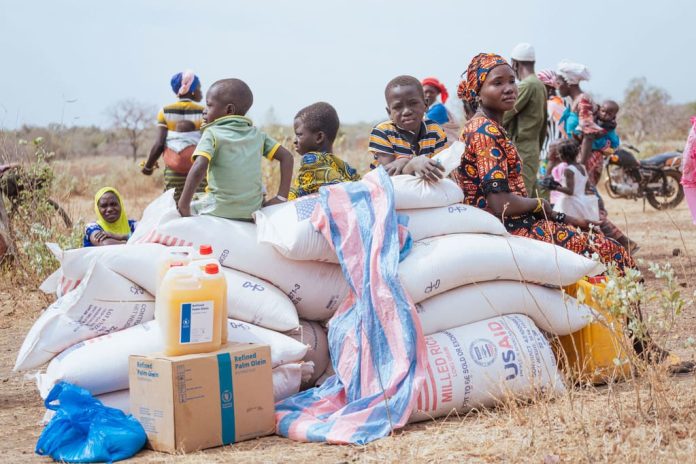The United Nations World Food Programme (WFP) has raised alarm over a record hunger crisis affecting West and Central Africa, as conflict, displacement, economic instability, and climate disasters converge to push millions to the brink of famine, reported the UN News.
According to the latest analysis, over 36 million people in the region are currently struggling to access basic food supplies, a number expected to surpass 52 million during the lean season from June to August. Alarmingly, nearly three million people are in emergency-level hunger, with 2,600 people in Mali at risk of catastrophic starvation.
Despite the historic levels of need, WFP reports a significant funding shortfall. “Without immediate funding, WFP will be forced to scale down even further both in the number of people reached and the size of food rations distributed,” warned Margot van der Velden, Regional Director for West and Central Africa.
The crisis has worsened dramatically over the years. In 2019, only four percent of the region’s population was food insecure—today, that figure has jumped to 30 percent. Ollo Sib, WFP’s senior research adviser, emphasized the severity of the situation, particularly in areas like northern Ghana, where farmers have had to replant crops multiple times due to drought. In northern Mali, market access remains restricted, while food prices have surged 50% above the five-year average.
The crisis is exacerbated by persistent conflict, which has displaced over 10 million people, including two million refugees in Chad, Cameroon, Mauritania, and Niger. Nigeria and Cameroon alone account for nearly eight million internally displaced people. Additionally, skyrocketing food and fuel prices, coupled with recurrent floods and droughts, continue to deepen the region’s food insecurity.
To tackle this emergency, WFP is seeking $710 million in funding to continue life-saving operations through October, aiming to assist nearly 12 million people. So far, three million of the most vulnerable—including malnourished children, pregnant and breastfeeding women, refugees, and displaced persons—have received aid. However, five million people risk losing access to assistance without urgent support.
The WFP also called for long-term investments to build resilience and reduce aid dependency. Since 2018, it has worked with regional governments to address hunger’s root causes, rehabilitating over 300,000 hectares of land and benefiting more than four million people across 3,400 villages.




